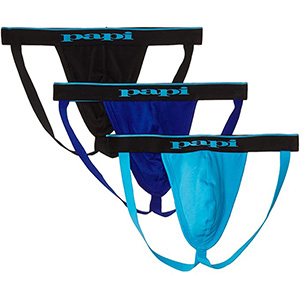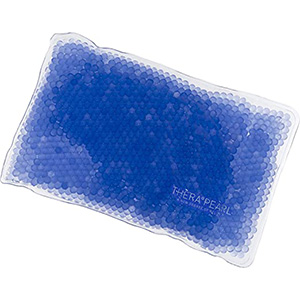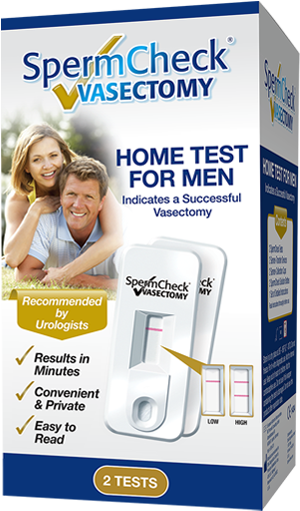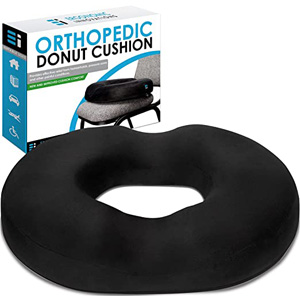Men who are considering a vasectomy usually have two questions about exercise and physical activity after a vasectomy:
- How long do I need to wait after the procedure before resuming normal physical activities?
- In the long-term, will I still be able to run, ride a bike, swim, lift weights, etc.?
While there’s no one-size-fits-all answer to these questions, there are some basic guidelines you can follow to ensure you allow your body to heal properly after a vasectomy. And (as always) follow your doctor’s instructions and don’t hesitate to call them if you have concerns or questions about what you can and can’t do following your operation.
We will be addressing non-sexual physical activities below if you have questions about sexual activities, head over to our “sex after vasectomy” section.
Suggested readingActivity immediately after a vasectomy
For some men, the recovery period after a vasectomy is a welcome excuse to take it easy for a couple of days while being lovingly cared for by their partner. Other men can’t wait to get back to their regular routine. Either way, it’s important to know how long to wait before resuming physical activity after your procedure.
You should rest and do as little as possible in the first two days after your vasectomy. Vasectomy operations typically take place on Thursdays and Fridays, which means relaxing in bed or on the couch for the weekend after the procedure.
Recommended products for recovery
We only recommend products we think are useful for our readers. If you make a purchase, we may earn a small commission. JockstrapsPapi Men’s Cotton Jock Strap 3-Pack
JockstrapsPapi Men’s Cotton Jock Strap 3-Pack Ice packsTheraPearl Ice Pack with Gel Beads
Ice packsTheraPearl Ice Pack with Gel Beads Home Vasectomy TestSpermCheck Vasectomy Test Kit
Home Vasectomy TestSpermCheck Vasectomy Test Kit Donut-shaped pillowErgonomic Innovations Orthopaedic Seat
Donut-shaped pillowErgonomic Innovations Orthopaedic Seat
After the initial two-day healing period, most doctors recommend waiting at least a week before engaging in strenuous physical activities like working out and heavy lifting. Light activity is generally acceptable a few days after the vasectomy, but it should be limited to basic activities like walking, running errands, etc. While many men report feeling ready to resume exercise just a few days after their vasectomy, it’s best to err on the side of caution and take a full week for recovery. Remember that your testicles are recovering from a traumatic event and are still at risk of developing postoperative complications.
A follow-up appointment is often scheduled one week after the surgery. That is the time to ask if you can go back to doing all the things you did before your operation. If you’ve experienced complications after your vasectomy or the incision is taking longer than expected to heal, your doctor may suggest waiting a little longer for more demanding physical activities.
Post-vasectomy activity in the long-term
While you’ll need to take it easy in the days right after your vasectomy, there are no long-term limitations on what you can do after a successful operation. If you enjoyed cycling, running, weight lifting, or swimming before your vasectomy, you’ll still be able to enjoy all these activities after your operation once you’ve fully recovered.
Some men experience soreness and tenderness for several weeks after their vasectomy, and in these cases, certain types of exercise might cause discomfort or pain. In these situations, it’s probably best to avoid biking, jogging, or any activity that shakes or puts extra pressure on the testicles. Wearing support such as tight underwear or a jockstrap may aid in preventing discomfort with activity. Should you experience any discomfort, it is recommended to ice the affected area, rest, and avoid the inciting activity. If symptoms persist or worsen, then you should contact your doctor. If you experience post-vasectomy complications, this can increase the amount of time you’ll need to recover. Hematomas, infections, and other issues could increase your low-activity requirement time by weeks or months.
Suggested readingJobs requiring physical labor
If your job involves any sort of physical labor, you need to let your doctor know. In most cases, the doctor will recommend taking extra time off or finding lighter duty work to do during the recovery period. The duration of lighter duty may vary depending on the length of your recovery period.
Summary
Regardless of how long it’s been since you’ve had a vasectomy, you need to use common sense and listen to what your body is telling you. If you still feel sore after a week, do yourself a favor and take it easy until you feel normal again.
References and further reading
Vasectomy-Information.com has a strict sourcing policy. We rely on evidence-based medicine, peer-reviewed studies, reputable clinical journals, and medical associations. Learn more about how we ensure our content is accurate and up-to-date by reading our editorial policy.- Vasectomy. Mayo Clinic. Published February 14, 2019. https://www.mayoclinic.org/tests-procedures/vasectomy/about/pac-20384580
- Vasectomy Recovery Information. Marie Stopes Vasectomy. https://www.vasectomy.org.au/recovery/
- Vasectomy: Six Things You Need to Know. Brigham Health Hub. https://brighamhealthhub.org/treatment/vasectomy-six-things-you-need-to-know
I’m an avid weightlifter who had the snip last Friday (it’s Wednesday now.) I have a bachelor’s in exercise physiology and was attempting to research why the week and what is the actual reason to take time off, be it from jostling your reproductive healing process or something else. I started lifting after a few days; this last Monday. Here’s what I came up with, and I’m sure every fellow is different. It was more uncomfortable stepping in and out of my honda than it was to exercise. Hopefully, that puts it into a little more context. I started lifting arms and moved on to back, calves, shoulders, and chest the following workout two days later (last night.) It was a little harrowing first to attempt it and feeling confident superseding the doctor’s orders. In my experiences so far, five days after surgery and two workouts in:
1. Yes, the potential to bonk your junk around like in sport or doing some HIIT training is real and also really scary in your current situation. I highly, and I mean highly recommend avoiding that. I’m nervous even to play volleyball six days after, which is close to the full week’s wait.
2. You can also bump your scrotum just trying to adjust your gym shorts or manipulate weights. Keep the weights light if not for the next reason but also because you have more control over them, spatially.
3. The biggest concern I’ve identified when working out again is the intensity. High weight and low rep lifts create a significantly sudden increase in your blood pressure, causing an inadequately healed or cauterized wound to reopen. It could also cause additional discomfort that almost made me walk out halfway through shrugs. Please don’t do it. Keep it to 12 to 15 reps. I haven’t tried it, but I’d stay away from squats or any other full-body compound lifts.
I might be a moron according to surgeons of the procedure, but folks, think about what you’re doing. I hated the procedure and would never want to go through it again, mainly because my dumbass didn’t take precautions. I hope this helps.
Hi, I’m getting mine done in a couple of days. I’m going to give it five days before I get back into the gym, and I’ll ask my coach to create a light routine for a few days and see how it goes.
Totally makes sense about the risk of the increase in blood pressure. Like when your doing heavy, low-rep deadlifts and you see the veins in your neck surging in the mirror. That helps a lot, thanks, I’ll probably go with some low weight, high-rep, non-full-body, hypertrophy workouts starting 3-days after.
I’m an avid weight lifter myself and just had a vasectomy. My doctor told me I could resume back to the gym after one week.
Is there an answer to this? What is the standard guideline? And what can happen if exercise is resumed too quickly after surgery?